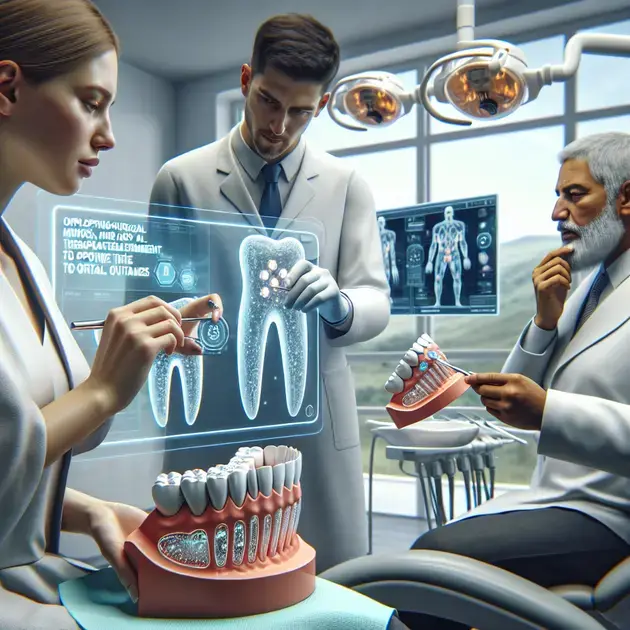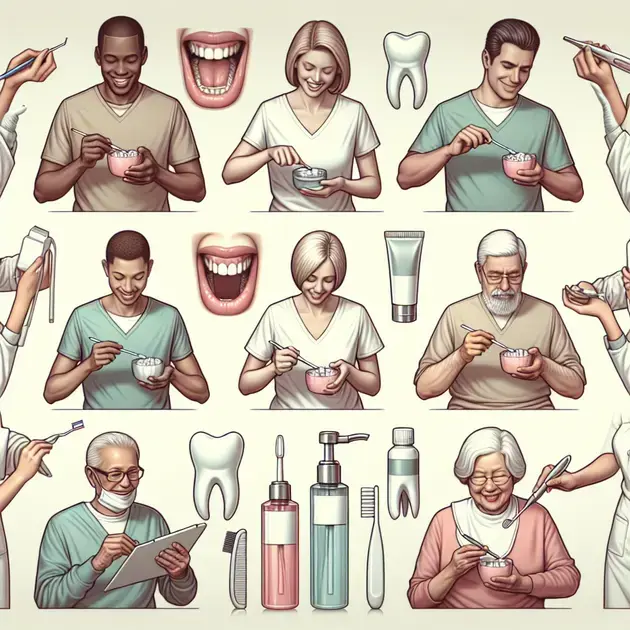When it comes to addressing periodontitis, medication can play a crucial role in the treatment process. In this medication guide, we will explore the various treatment options available for managing periodontitis effectively.
From antimicrobial mouth rinses to antibiotic therapies, understanding the different medications used in the treatment of periodontitis is essential for patients and healthcare providers alike. Let’s delve into the details of these medication options and how they can help combat this common dental issue.

Effective Treatment Options for Periodontitis
Periodontitis is a severe gum infection that damages the soft tissue and destroys the bone that supports your teeth. It can lead to tooth loss if not treated effectively. Here are some steps to follow for effective treatment of periodontitis:
1. Professional Dental Cleaning:
Visit your dentist for a professional cleaning to remove plaque and tartar buildup. This can help prevent further progression of periodontitis.
2. Scaling and Root Planing:
Your dentist may recommend scaling and root planing to clean the pockets of bacteria and smooth the root surfaces to promote healing.
3. Antibiotic Therapy:
In some cases, antibiotics may be prescribed to help control bacterial infections associated with periodontitis. Follow your dentist’s instructions carefully when taking antibiotics.
4. Surgical Treatments:
For severe cases, surgical treatments such as flap surgery or bone and tissue grafts may be necessary to repair the damage caused by periodontitis.
5. Maintenance and Follow-Up:
After treatment, it’s essential to maintain good oral hygiene practices and attend regular follow-up appointments with your dentist to monitor your progress.
Exploring Antimicrobial Mouth Rinses
Antimicrobial mouth rinses can be an effective tool in managing periodontal disease by reducing bacteria in the mouth. Here’s how you can explore the use of antimicrobial mouth rinses:
1. Consult Your Dentist:
Speak to your dentist about the benefits of using antimicrobial mouth rinses and discuss which product would be most suitable for your condition.
2. Read Product Reviews:
Research online sources such as dental health websites or product review platforms to learn about different antimicrobial mouth rinses and their effectiveness.
3. Check Ingredients:
Look for mouth rinses containing ingredients like chlorhexidine, cetylpyridinium chloride, or essential oils, known for their antimicrobial properties.
4. Follow Instructions:
When using an antimicrobial mouth rinse, make sure to follow the instructions on the product label for the correct dosage and duration of use.
5. Monitor Progress:
Be vigilant for any improvements in your oral health after incorporating antimicrobial mouth rinses into your daily hygiene routine and discuss any concerns with your dentist.
Understanding Antibiotic Therapies
Antibiotics can play a role in treating periodontitis by targeting and eliminating harmful bacteria in the gums. Here is a breakdown to help you understand antibiotic therapies for periodontitis:
1. Types of Antibiotics:
There are different types of antibiotics used to treat periodontitis, including tetracycline, doxycycline, and metronidazole. Your dentist will prescribe the most suitable antibiotic for your condition.
2. Combination Therapy:
For more severe cases, a combination of antibiotics may be prescribed to effectively combat the bacteria causing the infection. Follow the dosage instructions carefully.
3. Timing of Antibiotic Use:
Antibiotics are usually prescribed for a specific period to coincide with other periodontal treatments. It’s essential to take the antibiotics as instructed by your dentist.
4. Side Effects:
Be aware of potential side effects of antibiotic therapy, such as stomach upset or allergic reactions. Inform your dentist immediately if you experience any adverse effects.
5. Follow-Up Care:
After completing a course of antibiotics, attend follow-up appointments with your dentist to assess the effectiveness of the treatment and make any necessary adjustments to your dental care routine.

Exploring Non-Surgical Approaches for Gum Disease
When it comes to managing gum disease, exploring non-surgical approaches can be a beneficial alternative to invasive procedures. Non-surgical methods such as scaling and root planing involve deep cleaning to remove plaque and tartar buildup below the gumline. These procedures can help reduce inflammation and promote gum health without the need for surgery.
Another non-surgical approach for gum disease is laser therapy. This innovative treatment involves using laser technology to target and remove infected tissue while promoting the regeneration of healthy gum tissue. Laser therapy is relatively painless and can result in faster healing times compared to traditional surgery.
In addition to professional treatments, maintaining good oral hygiene at home is essential for managing gum disease. Brushing twice a day, flossing regularly, and using an antimicrobial mouthwash can help prevent the progression of gum disease and support overall oral health.
Regular dental check-ups are also crucial for monitoring the health of your gums and catching any signs of gum disease early. Your dentist can recommend the most suitable non-surgical approaches based on the severity of your condition and help you maintain healthy gums in the long term.
Enhancing Periodontal Health with Adjunctive Therapies
While non-surgical approaches are effective for managing gum disease, enhancing periodontal health with adjunctive therapies can provide additional benefits. One such therapy is the use of probiotics, which can help restore the balance of good bacteria in the mouth and support gum health.
Another adjunctive therapy to consider is herbal mouth rinses. Natural ingredients such as tea tree oil and peppermint have antimicrobial properties that can help reduce bacteria in the mouth and promote a healthy environment for the gums.
Dietary supplements such as vitamin C and omega-3 fatty acids can also play a role in enhancing periodontal health. These nutrients support immune function and reduce inflammation, which are essential for preventing and managing gum disease.
Incorporating these adjunctive therapies into your oral care routine can complement non-surgical treatments and help improve the overall health of your gums. Consult with your dentist or healthcare provider to determine the most suitable therapies for your individual needs.
Maximizing Treatment Effectiveness through Lifestyle Changes
Alongside non-surgical approaches and adjunctive therapies, maximizing treatment effectiveness for gum disease also involves making lifestyle changes. One key factor to consider is smoking cessation, as tobacco use can significantly impact gum health and interfere with the success of dental treatments.
Adopting a balanced diet rich in fruits, vegetables, and lean proteins can provide essential nutrients for gum health and overall wellbeing. Limiting sugary and acidic foods can help prevent plaque buildup and reduce the risk of gum disease progression.
Regular exercise and stress management techniques can also benefit periodontal health by reducing inflammation and supporting immune function. Maintaining a healthy lifestyle can contribute to the success of gum disease treatments and promote long-term oral health.
By addressing lifestyle factors and making positive changes, you can enhance the effectiveness of non-surgical approaches and adjunctive therapies for gum disease. Consult with your healthcare providers for personalized recommendations on how to optimize your treatment outcomes through lifestyle modifications.
Conclusion
In conclusion, exploring non-surgical approaches for gum disease offers a valuable alternative to invasive procedures. Techniques like scaling and root planing, along with laser therapy, play a crucial role in reducing inflammation and promoting gum health without the need for surgery. These methods, combined with maintaining good oral hygiene practices at home, form a comprehensive approach to managing gum disease effectively.
Furthermore, enhancing periodontal health with adjunctive therapies such as probiotics, herbal mouth rinses, and dietary supplements can provide additional benefits in restoring the balance of oral bacteria, reducing microbial growth, and supporting immune function. By incorporating these therapies into your oral care routine, you can complement non-surgical treatments and improve the overall health of your gums.
Moreover, maximizing treatment effectiveness for gum disease involves making lifestyle changes like quitting smoking, adopting a balanced diet, and engaging in regular exercise. These adjustments can significantly impact gum health by reducing inflammation, preventing plaque buildup, and supporting immune function. By addressing lifestyle factors positively, you can enhance the success of non-surgical approaches and adjunctive therapies, ultimately promoting long-term oral health.



